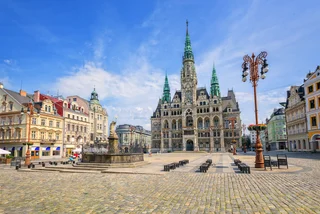With travel restrictions remaining unpredictable around the world, this summer has been a trying one for tourism services throughout the Czech Republic. Airbnb has been particularly affected by the pandemic, and despite a rebound in global turnover shown by the company’s latest quarterly results, Czech Airbnb rentals continue to see severely reduced earnings.
Airbnb’s results showed a huge 300 percent jump in turnover compared to last year, an increase which is hardly surprising given the drastic decline in travel numbers seen in 2020. June this year saw a 653 percent year-on-year increase in passenger traffic at Prague’s Václav Havel Airport, showing that while the travel industry remains a shadow of its former self, 2021 has nonetheless been a marked improvement on the darkest days of the pandemic in 2020
“Tourism is recovering and Airbnb is at the forefront of this trend,” Airbnb's leadership said in a letter to investors accompanying the results.
But it’s not all good news for the controversial accommodation provider. Data shows that prices for short-term stays in the Czech Republic continue to be far below pre-pandemic levels, and Airbnb landlords can currently only charge a fraction of their previous rates. The situation is particularly bad in Prague, where Airbnb providers have been left struggling to compete due to a reduced number of tourists seeking short-term stays and growing competition for long-term leases.
Although the number of available flats for long-term rent in Prague decreased by 11 percent quarter-on-quarter, from 15,400 to 13,700, there are still twice as many available as there were before Covid,” said Vít Soural, a project manager at Flat Zone, about the stiff competition facing Airbnb in the long-term accommodation market.
The AirDNA portal meanwhile shows a dramatic decrease in available Airbnb rentals in Prague since the start of the pandemic, from 14,387 in the first quarter of 2020 to 7,480 in the second quarter of 2021. While this negative trend appears to be slowing, the lack of any uptick in rentals at the start of the tourist season is a major cause for concern for Airbnb landlords in the Czech Republic.
This stagnation is being driven primarily by a lack of foreign tourists. Accommodation providers outside Prague targeting domestic travelers are benefiting from the fact that many people have chosen to holiday within the Czech Republic this year. Those catering to foreign guests in the capital are therefore recovering far more slowly from dire decreases in bookings resulting from enforced closures and other pandemic restrictions earlier this year.
Having failed to capitalize on the summer season in Prague, Airbnb’s management sounded a note of caution due to ongoing Covid uncertainty. Bookings are lower worldwide in Q3, and many travelers remain uneasy about the possibility of a new wave of the pandemic striking as colder weather returns.
“We do not yet know how willing people will be to travel in the fall as compared to summer,” the company admitted in its results. As Czech Airbnb providers continue to struggle with reduced demand during the traditional tourist season, a difficult winter may lie ahead.












 Reading time: 2 minutes
Reading time: 2 minutes 




























